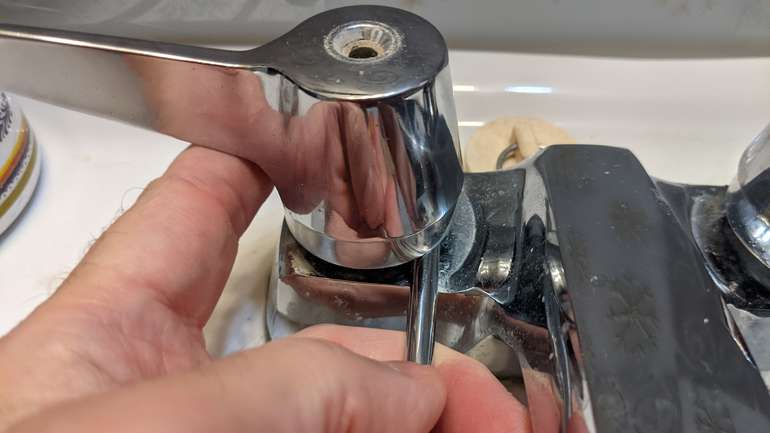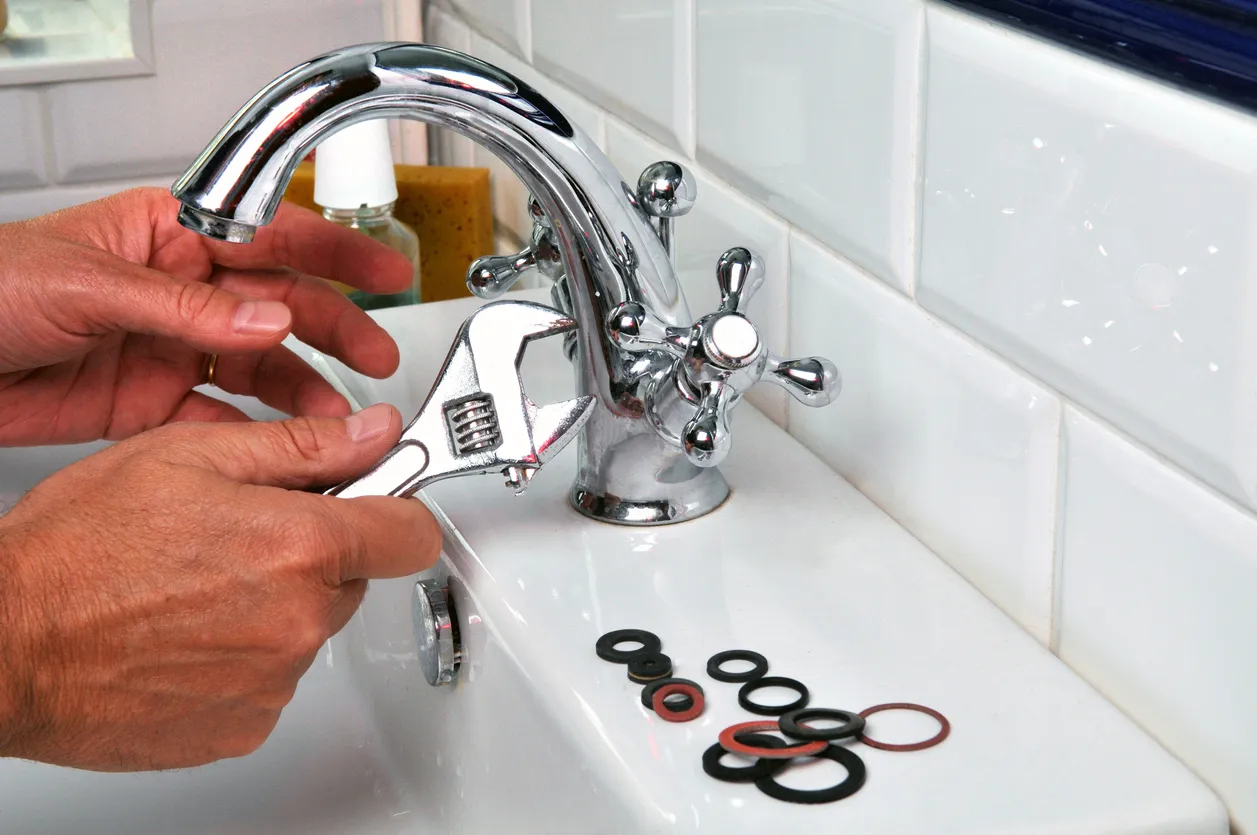My Reasons Behind Fixing a Malfunctioning Faucet
My Reasons Behind Fixing a Malfunctioning Faucet
Blog Article
They are making a number of great points on the subject of Leaky Faucets: Why They Happen & What to Do About Them in general in the article in the next paragraphs.

Dripping faucets could seem like a minor aggravation, but their influence goes beyond just the nuisance of the audio. From wasting water to incurring unnecessary monetary prices and health risks, disregarding a leaking tap can bring about numerous repercussions. In this post, we'll explore why it's vital to resolve this usual house concern without delay and properly.
Wastefulness of Water
Ecological Effect
Leaking taps contribute considerably to water wastage. According to the Environmental Protection Agency (EPA), a solitary tap leaking at one drip per second can throw away greater than 3,000 gallons of water annually. This not only pressures water sources but additionally impacts ecosystems and wild animals based on them.
Financial Costs
Raised Water Expenses
Past the environmental effect, dripping taps can pump up water bills considerably. The collected wastage in time equates right into higher energy expenses, which can have been prevented with timely repairs.
Possible Building Damage
In addition, prolonged trickling can lead to harm to components and surface areas surrounding the tap. Water build-up can create discoloration, corrosion, and also structural concerns if left unattended, causing additional fixing costs.
Wellness Concerns
Mold And Mildew and Mold Development
The constant existence of dampness from a dripping faucet produces a perfect atmosphere for mold and mildew and mold growth. These fungi not only jeopardize indoor air quality however likewise present wellness threats, particularly for individuals with respiratory conditions or allergies.
Waterborne Diseases
Stagnant water in trickling faucets can become a breeding ground for bacteria and other pathogens, raising the threat of waterborne illness. Pollutants such as Legionella bacteria thrive in stagnant water, possibly bring about severe diseases when ingested or breathed in.
DIY vs. Specialist Repair service
Advantages and disadvantages of DIY Repair Service
While some might attempt to take care of a trickling tap themselves, DIY repairs feature their own collection of challenges. Without proper understanding and tools, DIY efforts can worsen the concern or bring about insufficient repairs, extending the trouble.
Benefits of Working With an Expert Plumber
Working with an expert plumber makes sure that the underlying cause of the leaking tap is resolved properly. Plumbings have the know-how and devices to identify and repair faucet concerns successfully, saving time and lessening the danger of additional damage.
Step-by-Step Guide to Fixing a Dripping Tap
Devices Required
Prior to trying to repair a dripping tap, gather the necessary devices, including a flexible wrench, screwdrivers, replacement components (such as washers or cartridges), and plumber's tape.
Usual Faucet Issues and Their Solutions
Recognize the kind of tap and the details problem creating the drip. Common troubles include worn-out washing machines, corroded valve seats, or damaged O-rings. Refer to maker directions or on-line tutorials for detailed assistance on repair services.
Safety nets
Regular Maintenance Tips
To avoid leaking taps, execute regular upkeep such as cleaning aerators, inspecting for leakages, and changing damaged components immediately. In addition, take into consideration mounting water-saving tools or updating to a lot more effective fixtures.
Significance of Prompt Repair Works
Resolving trickling faucets as soon as they're noticed protects against more water wastage and potential damage, ultimately saving both water and money in the long run.
Impact on Property Value
Assumption of Well-Maintained Home
Maintaining a residential or commercial property in good condition, consisting of dealing with upkeep issues like trickling faucets, improves its regarded value and worth among possible buyers or renters.
Influence on Resale Value
Residences with well-maintained plumbing components, consisting of taps, command greater resale values in the real estate market. Dealing with leaking taps can add to a positive perception throughout residential property assessments and settlements.
Environmental Obligation
Specific Payment to Conservation
Taking duty for taking care of dripping faucets lines up with broader initiatives toward water preservation and environmental sustainability. Every person's activities collectively make a significant effect on maintaining priceless sources.
Lasting Living Practices
By prioritizing timely repair work and taking on water-saving habits, people contribute to sustainable living methods that benefit both present and future generations.
Conclusion
Attending to a dripping faucet goes beyond mere benefit; it's a crucial action towards conserving water, minimizing economic prices, and safeguarding wellness and building. Whether with DIY repairs or specialist help, acting to take care of trickling faucets is a little yet impactful means to advertise responsible stewardship of sources and add to a healthier, more sustainable future.
How to Fix a Leaky Faucet: Step-by-Step Repair Guide
A leaky faucet may seem like a simple annoyance, but if it's not fixed promptly, that leak could cost hundreds to potentially thousands. From water damage to mold, mildew, and high water bills, even a tiny leak can be catastrophic if left unattended. Damage like this can even affect the overall value of your home, so it's important to take the right approach for leaky faucet repair. You may need the help of a plumber in some cases, but we've got a few tips you can try on how to fix a leaky faucet before calling the pros.
Four Faucet Types
When you're learning how to fix a leaky faucet, the first step is knowing what kind of faucet you're working with! There are four common types.
Cartridge Faucets
Cartridge faucets come in one- or two-handled varieties. In one-handled cartridge faucets, hot and cold water combines in a single cartridge. In the two-handled versions, hot and cold water are controlled separately and mixed in the faucet.
Ball Faucets
Ball faucets have a single lever you push up and down to adjust the pressure and rotate to change the temperature. A slotted metal ball controls the amount of water allowed into the spout.
Compression Washer Faucets
They're the oldest type of faucet, but they're still used in many homes — especially older ones. Compression faucets have two separate handles that, when turned, raise or lower the washer that seals a water valve. This valve stops water from flowing through the faucet when it is turned off.
Disc Faucets
Disc faucets rarely need to be repaired due to their maintenance-free design. The water flow is controlled by two discs — the upper one raises and lowers against a fixed lower disc, creating a watertight seal. If your disc faucet starts leaking, you may need to replace the seals or clean residue buildup from the inlets.
Fixing a Leaky Faucet
Step 1: Turn Off the Water
Whether you're learning how to fix a leaky bathtub faucet or how to fix a leaky kitchen faucet, always turn off the water supply to your working area when you're fixing a leak. The last thing you want is a flood added to your list of things to fix.
Look for the shutoff valves below your sink or around the tub and turn them clockwise to stop the water flow. If your faucet doesn't have shutoff valves, you may need to turn off the water for the whole house. Check to make sure it's off by turning the faucet on. If nothing comes out, you're ready to start the repair.
Step 2: Take Apart the Faucet
How you disassemble your faucet depends on the type of fixture you have. You can use a flathead screwdriver to remove the caps on top of the handle or handles for cartridge and compression faucets. Inside, you should see handle screws. Unscrew these with a screwdriver to remove the handle.
Disc- and ball-style faucets will typically have an inlet screw near the handle, and removing that will reveal the interior of the faucet.
Detach the Valve Stem
For cartridge- and compression-style faucets, you'll see the inner valve stem or cartridge once you remove the faucet handles. If you have a compression faucet, unscrew the brass valve stem. If you have a cartridge faucet, pull out the cartridge. If your cartridge has been in place for a while, it may require some tools or extra force to remove it due to mineral deposits.
Examine and Replace Parts
Once you've removed the parts, check them out to confirm what needs to be replaced. You may see corroded rubber washers, O-rings, stems, or cartridges. On a ball-style faucet, check the seats and springs for damage.
If you need to repair a leaky disc faucet, check the inlet and seals on the lower disc.
Once you determine what parts must be replaced, visit your local hardware store. Bring the damaged parts with you to ensure you can purchase the correct components to replace them.
Clean Valves and Faucet Cavity
If you've removed a stem or cartridge, you may notice mineral buildup in the faucet's threads. Use white vinegar to clean the valve seat by soaking it for a few minutes, then scrub it away with a soft toothbrush and rinse with warm water. You can also clean the interior of the faucet in the same way.
Reassemble the Faucet
Once your faucet is cleaned and the required parts have been replaced, it's time to reassemble it. Put the pieces back together and slowly turn the water supply back on. Doing this slowly is crucial because too much initial water pressure can damage the new hardware you've just installed.
https://homewarranty.firstam.com/blog/how-to-fix-leaky-faucet

As a serious person who reads about Why Is It Important To Fix Your Leaking Tap/Faucet?, I was thinking sharing that piece was really helpful. Are you aware of somebody else who is interested by the topic? Do not hesitate to promote it. I am grateful for your time. Don't hesitate to pay a visit to our blog back soon.
Report this page